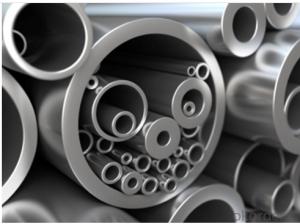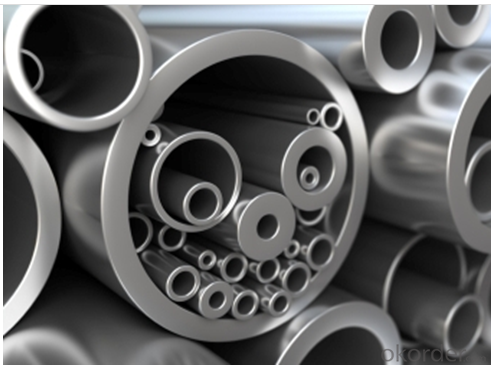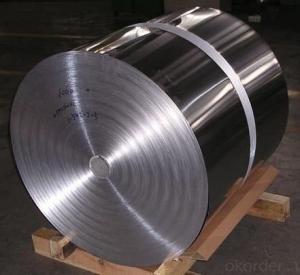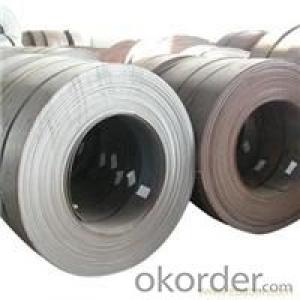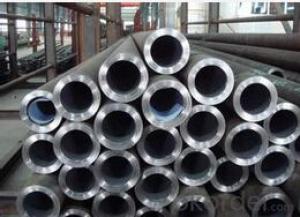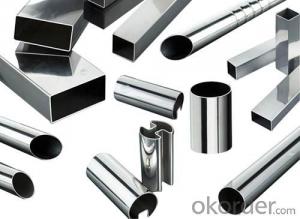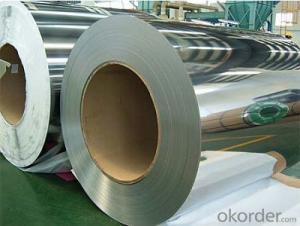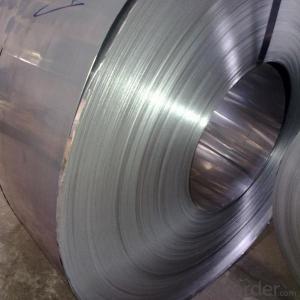201 Stainless Steel Tube Hot Sale and High Quality
- Loading Port:
- Shanghai
- Payment Terms:
- TT OR LC
- Min Order Qty:
- 20 m.t.
- Supply Capability:
- 3000 m.t./month
OKorder Service Pledge
OKorder Financial Service
You Might Also Like
We are manufacturer of stainless steel pipes. Have 8 years in exporting. Xinya , you should be dependent on the brand!
FoShan XinYa Stainless Steel Co., Ltd is a professional manufactory specialized in stainless steel pipe online for many years in China. XinYa has passed ISO9001. In addition, we have customers all over the world, and we have good long-term healthy relatio
ns with them. That proves our quality products and service.
Standard:
Strictly follow the ASTM A 554 and others.
Features:
1) Material of stainless steel: grade: AISI 201, 304 430
2) Applied field: construction upholstery, and industry instruments (fencing, railing, security doors / windows, gate fittings, inside staircases, balcony balustrades,furniture, sanitary wares, kitchen wares)
Specifications:
1) Round pipes - Outside diameter(mm) :
8,9.5,11,12, 12.7,14.5, 15.9, 17,18,19,20,22,23,28,29, 31.8 ,35,36,38,45, 47,48,50.8,60,63,76,88.9,102,114,133,141,159,219
2)Square pipes - Outside dimensions(mm) : 10x10,12x12,15x15,17x17,18x18,19x19,20x20,22x22,23x23,24x24,25x25,28x28,30x30,36x36,38x38,40x40,48x48,50x50,60x60,70x70,80x80
3)Rectangular pipes - Outside dimensions(mm) : 20x10,23x11,24x12,25x13,28x13,30x15,34x22,36x23,37x24,38x25,40x20,48x23,50x15,50x25,60x15,60x30,73x43,75x45,95x45
4) Wall thickness: 0.24- 3.0mm
5) Length: 6m (or according to customers' requests)
6) Polishing: 600#,400#, 320#, 240#, 180#.etc.
7) Tolerance:
a) Outer diameter: ±0.15mm
b) Thickness: ±10% of wall thickness
c) Length: ±4.5mm - 0mm
8) Other size can be manufactured according to requirements
| Packing: | |
| Inner: bundles packing, plastic bag cover every pipe | |
| Outer:according to customers'requirements | |
| Payment Term: 30%T/T for deposit,70% for balance | |
| Delivery Time: about 15 days after the confirmation of the deposit | |
| Other service: Other specifications can be manufactured according to customers' requirements | |
- Q: Can steel pipes be used for water wells?
- Yes, steel pipes can be used for water wells. Steel pipes are commonly used in water well drilling due to their durability, strength, and resistance to corrosion.
- Q: How are steel pipes transported and stored?
- Steel pipes are typically transported using trucks, trains, or ships, depending on the distance and quantity. These pipes are often stacked and secured with straps or chains during transportation to prevent any movement or damage. When it comes to storage, steel pipes are commonly stored in outdoor yards or warehouses. They are usually organized in neat rows or stacked on racks to maximize space and facilitate easy access. Additionally, pipes may be covered with weather-resistant materials to protect them from rust or corrosion during storage.
- Q: What are the different types of steel pipe caps?
- There exists a variety of steel pipe caps, each serving specific purposes and applications. A few commonly used types are as follows: 1. Threaded Caps: These caps possess internal threads that enable them to be screwed onto threaded pipes, ensuring a secure seal. They find frequent usage in plumbing and gas-related tasks. 2. Socket Weld Caps: These caps are designed for welding onto pipe ends using a socket weld connection. They offer a strong and permanent seal, rendering them suitable for high-pressure and high-temperature tasks. 3. Butt Weld Caps: Butt weld caps, similar to socket weld caps, are meant for welding onto pipe ends. However, they are specifically designed for butt welding, which involves directly welding the cap to the pipe without additional fittings. 4. Domed Caps: These caps have a domed or rounded shape on the upper surface, providing a smooth and visually pleasing finish. They are commonly applied in architectural and decorative tasks, such as handrails or fence posts. 5. Flat Caps: As the name suggests, flat caps possess a flat upper surface. They are often utilized when a simple and low-profile cap is required, such as for safeguarding pipe ends in industrial applications. 6. Blind Caps: Blind caps are employed to permanently seal off pipe ends. They are solid caps without any openings or threads, ensuring complete closure. They are frequently utilized in piping systems where a section of the pipeline is not in use or temporarily needs to be closed off. These examples merely scratch the surface of the various steel pipe caps available. The selection of a cap depends on specific application requirements, including the type of connection, pressure, temperature, and the necessity for structural or decorative finishes. It is crucial to choose the appropriate cap to guarantee a secure and reliable seal for the pipe.
- Q: What is the difference between internal coating and external lining of steel pipes?
- Internal coating and external lining are two different methods used to protect steel pipes from corrosion and other forms of damage. Internal coating refers to the process of applying a protective layer or coating to the inner surface of the steel pipe. This is done to prevent the pipe from corroding or being damaged by the fluid or substance being transported through it. The coating is typically made of materials such as epoxy, polyurethane, or polyethylene, which provide a barrier between the pipe and the transported material. Internal coating helps to extend the lifespan of the pipe and maintain the quality of the transported material. On the other hand, external lining refers to the process of applying a protective layer or lining to the outer surface of the steel pipe. This is done to protect the pipe from external factors such as soil, moisture, chemicals, or physical damage. The external lining is usually made of materials such as polyethylene, polypropylene, or fusion-bonded epoxy. The lining acts as a barrier, preventing corrosive substances from coming into contact with the pipe and causing damage. It also helps to maintain the structural integrity of the pipe and prevent any leaks or cracks from forming. In summary, the main difference between internal coating and external lining of steel pipes is the location of the protective layer. Internal coating is applied to the inner surface of the pipe, while external lining is applied to the outer surface. Both methods aim to protect the pipe from corrosion and damage, but they focus on different aspects of pipe protection.
- Q: How big is the seamless steel tube of DN50?
- DN refers to the nominal diameter, the outer diameter is 60.3mm
- Q: What is the weight of a steel pipe?
- The weight of a steel pipe can vary depending on its size, length, and thickness. To determine the weight, you would need specific measurements of the pipe.
- Q: What are the applications of galvanized steel pipes?
- Galvanized steel pipes have numerous applications in various industries. They are commonly used for plumbing and water supply systems due to their corrosion resistance. Additionally, they are used in gas transmission, oil refineries, and industrial plants where resistance to harsh chemicals and high temperatures is crucial. Galvanized steel pipes are also employed in construction for structural support and scaffolding, as well as for fencing and handrails. Overall, their durability, strength, and cost-effectiveness make galvanized steel pipes suitable for a wide range of applications.
- Q: What are the different methods of joining steel pipes together?
- There are several methods of joining steel pipes together, including welding, threading, flange connection, and mechanical coupling.
- Q: How do you calculate the weight of steel pipes?
- To calculate the weight of steel pipes, you can use the formula: weight = volume × density. The volume of a steel pipe can be calculated by multiplying its cross-sectional area (πr²) with its length. The density of steel is typically known, or you can refer to a density table. By plugging in these values, you can determine the weight of steel pipes.
- Q: Are steel pipes suitable for potable water systems?
- Indeed, steel pipes prove to be an appropriate choice for potable water systems. Due to their robustness, longevity, and ability to resist corrosion, they are frequently employed in such systems. These pipes can endure substantial pressure and transport significant quantities of water. Furthermore, their versatility is evident as they can be effortlessly welded together, rendering them suitable for a wide range of applications within potable water systems. Nevertheless, it is crucial to emphasize the importance of regular inspections and adequate maintenance to avert potential problems such as rust or contamination.
Send your message to us
201 Stainless Steel Tube Hot Sale and High Quality
- Loading Port:
- Shanghai
- Payment Terms:
- TT OR LC
- Min Order Qty:
- 20 m.t.
- Supply Capability:
- 3000 m.t./month
OKorder Service Pledge
OKorder Financial Service
Similar products
Hot products
Hot Searches
Related keywords
